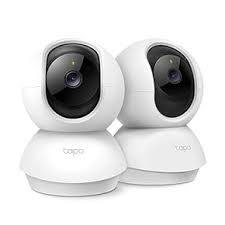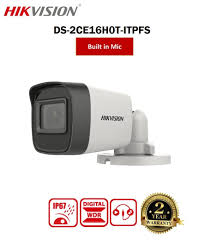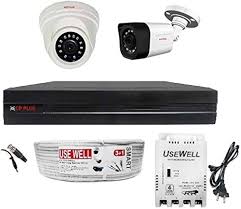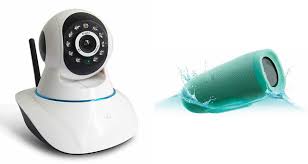In recent years, the use of home CCTV systems has become increasingly popular among homeowners looking to enhance the security of their properties. A home CCTV system, short for Closed Circuit Television system, consists of cameras placed strategically around the premises to monitor and record activities both inside and outside the house.
One of the key benefits of installing a home CCTV system is the added layer of security it provides. The presence of visible cameras can act as a deterrent to potential intruders and burglars, reducing the risk of break-ins and theft. In the unfortunate event of a security breach, CCTV footage can serve as valuable evidence for identifying perpetrators and aiding in their apprehension by law enforcement authorities.
Moreover, advancements in technology have made home CCTV systems more accessible and user-friendly than ever before. Modern systems offer features such as high-definition video recording, remote access via smartphones or computers, motion detection alerts, and even two-way audio communication. This allows homeowners to monitor their property in real-time from anywhere in the world, providing peace of mind and convenience.
Another advantage of home CCTV systems is their versatility in application. In addition to security monitoring, CCTV cameras can be used for various purposes such as keeping an eye on children or pets, monitoring deliveries or service providers, and even checking on elderly family members living alone. The ability to customize camera placements and settings ensures that homeowners can tailor their surveillance system to suit their specific needs.
When considering installing a home CCTV system, it is essential to choose high-quality cameras from reputable brands to ensure reliability and performance. Proper installation by professional technicians is also crucial to maximize the effectiveness of the system. By investing in a home CCTV system, homeowners can enjoy improved security, enhanced peace of mind, and greater control over their property’s safety.
Essential FAQs About Home CCTV Systems: Internet Requirements, Installation, Costs, and More
- Does home CCTV require Internet?
- Which home CCTV system is best?
- Can I install CCTV at home?
- Which CCTV is best for home?
- Can CCTV work without internet?
- How much does home CCTV cost?
- How much does it cost for home CCTV?
- How many GB is 24 hours CCTV?
Does home CCTV require Internet?
One common question that arises regarding home CCTV systems is whether they require an internet connection to function. The answer to this question depends on the type of CCTV system being used. Traditional wired CCTV systems typically do not need an internet connection to operate as they record footage locally on a DVR (Digital Video Recorder) or NVR (Network Video Recorder). However, for remote viewing and access to live footage via smartphones or computers, an internet connection is necessary. On the other hand, modern wireless CCTV systems often rely on Wi-Fi connectivity for both recording and remote access, making an internet connection essential for their functionality. Therefore, while home CCTV systems may not always require the internet for basic recording purposes, having an internet connection is beneficial for accessing live feeds and monitoring your property remotely.
Which home CCTV system is best?
When it comes to determining the best home CCTV system, several factors need to be considered to find the most suitable option for individual needs. The best home CCTV system is one that meets specific requirements such as the size of the property, desired features like night vision or motion detection, budget constraints, and ease of installation and use. It is essential to research different brands and models, read reviews from other users, and seek recommendations from security professionals to make an informed decision. Ultimately, the best home CCTV system is the one that offers a balance of reliability, performance, affordability, and functionality tailored to the unique security needs of each homeowner.
Can I install CCTV at home?
Yes, you can definitely install a CCTV system at home. Installing a CCTV system in your home is a proactive step towards enhancing the security and safety of your property. With advancements in technology, home CCTV systems have become more affordable, user-friendly, and accessible to homeowners. Whether you choose to install the cameras yourself or hire professional technicians, setting up a home CCTV system is a straightforward process that can provide valuable peace of mind by allowing you to monitor and protect your home effectively.
Which CCTV is best for home?
When it comes to choosing the best CCTV system for your home, several factors need to be considered to ensure optimal security and functionality. The “best” CCTV system for a home will depend on individual preferences, budget constraints, specific security needs, and the layout of the property. Some key considerations when selecting a home CCTV system include the number of cameras needed, camera resolution and quality, storage capacity for video recordings, remote monitoring capabilities, ease of installation and use, and compatibility with other smart home devices. It is advisable to research different brands and models, seek recommendations from security experts or trusted sources, and possibly consult with professional installers to determine the most suitable CCTV system that meets your requirements.
Can CCTV work without internet?
Yes, CCTV systems can work without internet connectivity. Traditional CCTV systems operate using closed-circuit technology, where the cameras are directly connected to a recording device such as a Digital Video Recorder (DVR) or Network Video Recorder (NVR) via cables. In this setup, the footage is recorded and stored locally on the recording device’s hard drive, eliminating the need for an internet connection for basic surveillance purposes. However, without internet access, remote viewing and control of the CCTV system via smartphones or computers may not be possible, as these features typically require an internet connection for data transmission.
How much does home CCTV cost?
One of the most frequently asked questions regarding home CCTV systems is, “How much does it cost?” The cost of a home CCTV system can vary significantly depending on several factors, including the number of cameras needed, the quality and features of the cameras, installation requirements, and additional accessories such as storage devices or monitoring services. Generally, a basic home CCTV system with a few cameras can range from a few hundred to a few thousand rupees. However, for those looking for more advanced features or higher resolution cameras, the cost can increase accordingly. It is essential for homeowners to consider their specific security needs and budget constraints when evaluating the cost of a home CCTV system to ensure they find a solution that meets both their requirements and financial capabilities.
How much does it cost for home CCTV?
One of the most frequently asked questions regarding home CCTV systems is, “How much does it cost?” The cost of a home CCTV system can vary depending on several factors, including the number of cameras needed, the quality of the cameras, additional features such as night vision or motion detection, installation requirements, and brand reputation. Generally, a basic home CCTV system with a few cameras can start from a few thousand rupees and go up to tens of thousands for more advanced systems with multiple high-definition cameras and remote monitoring capabilities. It is important for homeowners to consider their budget and security needs when determining the cost of a home CCTV system to ensure they select a solution that meets their requirements without compromising on quality.
How many GB is 24 hours CCTV?
One of the frequently asked questions regarding home CCTV systems is, “How many gigabytes (GB) are required to store 24 hours of CCTV footage?” The amount of storage space needed for 24 hours of CCTV footage can vary depending on several factors, including the video resolution, frame rate, compression method, and camera settings. Generally, a standard definition camera recording at a lower resolution and frame rate may require around 10-20 GB of storage for 24 hours of footage. In contrast, high-definition cameras capturing video at a higher resolution and frame rate could consume significantly more storage space, potentially ranging from 40 GB to over 100 GB for the same duration. It is essential to consider these factors when planning the storage capacity for a home CCTV system to ensure sufficient space for storing recorded footage.




